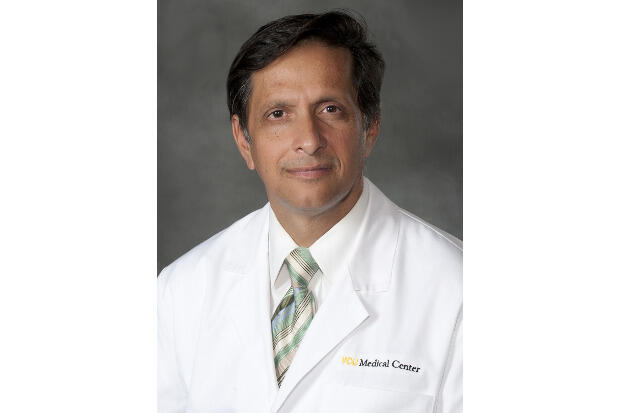
Aug. 30, 2016
Company launched at VCU selected for ‘Best University Startups’ event at Congress
Share this story
Sanyal Biotechnology, a company that has flourished with the support of Virginia Commonwealth University’s Innovation Gateway, will participate in the University Startups Demo Day at Congress on Sept. 20 in Washington, D.C.
The National Council of Entrepreneurial Tech Transfer, an association of university startup officers, selected Sanyal Biotechnology to be featured at the event alongside other exciting early-stage companies created at U.S. universities. The University Startups Demo Day is the university community’s opportunity to show how far it has come in its bold, new vision for the future of the university, and how that vision is central to national competitiveness and economic growth, peace and prosperity.
“To lead the world in the 21st century, our nation must have a sustained commitment to education, scientific research and startups,” said Tony Stanco, executive director of the National Council of Entrepreneurial Tech Transfer. “And American universities are uniquely positioned to deliver on all three to ensure the U.S. continues to lead socially and economically in this century, as it did in the last.”
Sanyal Biotechnology was formed on the basis of research by Arun Sanyal, M.D., professor in the VCU School of Medicine and president, chair and chief medical officer of Sanyal Biotechnology, who created a proprietary isogenic mouse strain that leads mice to respond to a high-fat, high-sugar Western diet just as people do. In particular, the mice develop non-alcoholic fatty liver disease, sometimes including non-alcoholic steatohepatitis, which is also known as NASH. NASH can lead to cirrhosis of the liver and perhaps liver cancer. The growing obesity epidemic is leading to an increasing number of cases of NASH, which is becoming a leading cause of liver-related mortality. No cure exists.
Sanyal Biotechnology offers contract research services to clients who seek a more physiologically relevant small animal model for their preclinical research into liver disease and other comorbidities resulting from the metabolic syndrome. The company develops customized studies to screen compounds of interest based on desired end points and provide professional interpretation of data.
“The lack of appropriately validated pre-clinical models is a major barrier to development of effective therapies and we are very hopeful that this model will remove this barrier and accelerate drug development for those afflicted with this disease,” Sanyal said. “It has been a terrific experience working with Innovation Gateway at VCU and with my new business partners to synergize our science with the business end to create our spin-off company.”
Sanyal Biotechnology was a product of the Entrepreneur-in-Residence program that Innovation Gateway implemented as one of a series of initiatives to support entrepreneurship and startup creation at VCU.
“We are very happy and proud that in a matter of months the company has successfully raised equity funding and has started delivering products to customers that would ultimately help combat NASH and other liver diseases,” said Ivelina Metcheva, Ph.D., executive director of Innovation Gateway.
VCU President Michael Rao, Ph.D., said Sanyal Biotechnology “exemplifies the commitment of VCU to advance technology, knowledge and solutions that make life better for people everywhere.”
This is an outstanding accolade.
“I am extremely proud of Arun and everyone at Sanyal Bio, Innovation Gateway and VCU whose work gives hope to people who need it, and I am thrilled — although not surprised — that Sanyal Bio is one of the Best University Startup companies for 2016,” Rao said. “This is an outstanding accolade.”
Rebecca Caffrey, Ph.D., CEO of Sanyal Biotechnology, said VCU played an essential role in the development of the company.
“The Innovation Gateway team at VCU understood the scientific uniqueness and commercialization potential of Dr. Sanyal’s technology and supported us during our launch,” Caffrey said. “We are pleased to continue to work closely with VCU.”
Universities create more than 800 startups each year, according to the National Council of Entrepreneurial Tech Transfer. Approximately 200 companies were submitted and screened to find the “Best University Startups 2016.” University startups are working to address the world’s most pressing problems through innovations such as remotely powered medical devices, regenerative medicine, Internet of Things building solutions, and alternative sustainable coatings and materials.
Subscribe to VCU News
Subscribe to VCU News at newsletter.vcu.edu and receive a selection of stories, videos, photos, news clips and event listings in your inbox.










